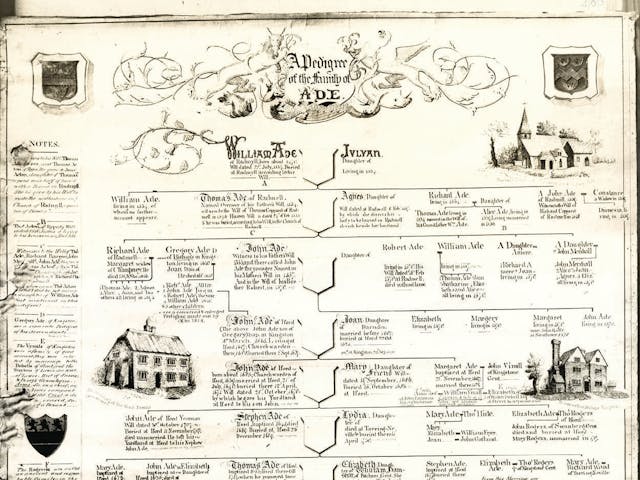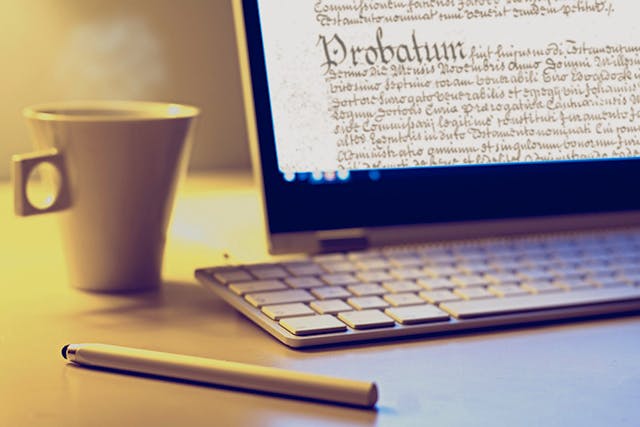
How to Get the Best Results from FamilySearch
Like any online genealogical record repository, FamilySearch (https://familysearch.org/) has a wealth of information waiting to be tapped into. This free service houses many digital original records that are searched every day. By learning the most effective way to do a search, you too will be able to find your ancestors in their vast collections.
FamilySearch is a vastly growing website with many different uses; for this cause, it is changing very often to accommodate for growth. It would not be beneficial to give a step-by-step search tutorial; however, it is important to know how to get the best results from a search.
What Records Can I Search?
FamilySearch holds records from all over the world, including the UK. Their catalogue can connect the researcher to their online records and books, as well as their holdings in the Family History Library (including microfilms, microfiche, books, etc.). Additionally, the site connects to a beneficial research wiki that discusses available records and research hints for almost every area in the world.
Historical Records Collection
FamilySearch’s digital collections (named ‘Historical Records Collections’) can be searched by individual name. On https://familysearch.org/search, there will be a basic search function, allowing you to enter information such as surname and given name, country, life event and year, as well as searching for potential relationships. When searching this way, sometimes less is more; By adding only a name, country, and date of birth, you will call up results for only births. At that point, you could maybe add a father’s name to narrow the results.
FamilySearch’s Historical Records Collection can also be searched by individual collection. By going to https://familysearch.org/search, one can click on the country they want to search. As of May 2022, FamilySearch has one hundred and forty-six online collections of documents from all over the United Kingdom and Ireland with millions of names indexed. The types of information that can be found in these records includes all the English census returns, non-conformist records, parish registers and bishop’s transcripts, marriage bonds, land tax assessments, workhouse records, court records, probate, military records and many other types of records.
It is a good search strategy to look through their collections individually so you know exactly what FamilySearch has and if it can in any way relate to your family, either by county or the years covered.
Searching Historical Records that are Not Indexed
These Historical Record Collections may or may not be indexed. This is due to the fact that many of these records are scanned and uploaded versions of microfilms, which sometimes do not have an index. It is beneficial to search these records if you are positive an ancestor lived in a certain county at a certain time that is covered by the digital collection. If you are just curious, it may be more helpful to search them when there is an index, the same way you would for a microfilm.
FamilySearch Catalogue
The FamilySearch Catalogue lists not only the Historical Record Collection, but also the books, microfilms, microfiches, and other genealogical publications that are available at the Family History Library. You can search both the FamilySearch Catalogue and the Historical Record Collection separately. One will give you immediate information from indexed records, while the other will point you to records available at the Family History Library. Currently, the catalogue can be searched in multiple ways, including place name, last names, titles, authors, subjects, keywords, and call or film numbers.
If you want to learn more about a place your ancestor lived and what records are available, try to search by place name. To search by place name, type the place you want to search and click on the place in the drop down menu. You can either search by county or parish, depending on the type of information you want to appear (for example, if you search a county, you will find county-wide records or historical guides; if you search by parish, you will find parish-wide records, such as parish registers). This can be done for any of the other search types.
At this point, you may have found a record that you want to look further into. The copies held at the Family History Library are microfilmed copies of the original documents that are most likely found in one of the many county record offices. When you click on a record, it will bring you to a page that describes the collection. For example, if you were interested in Abbotsbury, Dorset Bishop’s Transcriptions from 1731-1879, FamilySearch’s catalogue would tell you that these are filmed on one roll, and are originally held at the Wiltshire County Record Office in Trowbridge, rather than in Dorset. This kind of information is helpful to know when doing research in the UK, because records change hands quickly and it is always good to know where the original records are if they are closer to you.
If you cannot get to the original documents in the UK or go to the Family History Library in Salt Lake City, Utah, you can order the film to get sent to a Family History Centre anywhere in the world for a fee. You can do that by clicking on the microfilm number on the collection’s summary page. There you can choose what type of loan you want (short term, extended, renewals, etc.).
FamilySearch Wiki
The Family Search Wiki is a Wikipedia tool that gives articles specifically about genealogical research. You can search for topics in their search bar (for example, you could search ‘English Probate’ to find a page explaining wills and probate). The types of wiki pages varies greatly; one page could explain the history and record holdings of a small parish, while another page can explain the history and use of parish registers. They also have explanations of the various collections held at the Family History Library as well as the Historical Records Collection.
Books
Many books available at the Family History Library have been scanned and put online, available for research. They also have collections of other books made available by other archives and libraries, including the Allen County Public Library and Brigham Young University Harold B. Lee Library. These books can include family history magazines, history books, reference materials, indexes, and many other types of books. You can do a basic search or an advanced search, depending on what information you know at the beginning of your search. The search tool is geared towards searching for a specific book title or author, to help you see what items are available. For example, if you search the words ‘English Wills,’ the results will show any book that has ‘English Wills’ in the title. To get more specific results, use the advanced search tool and give more information, including book name, author, and keywords.
Other Services
FamilySearch, although free, is a subscription service, which requires an account to look at certain types of documents. Creating this account will also allow you to interact with the FamilySearch community and maybe find more information about your family by talking to others about your research. Happy hunting!
____________________________________________________________
Written by Abbie Black 2013
© Society of Genealogists 2017
Join us
As a member, you can make the most of our resources, access our experts, and find a welcoming community of people interested in family history and genealogy.
We all have roots. Let’s find them together.
